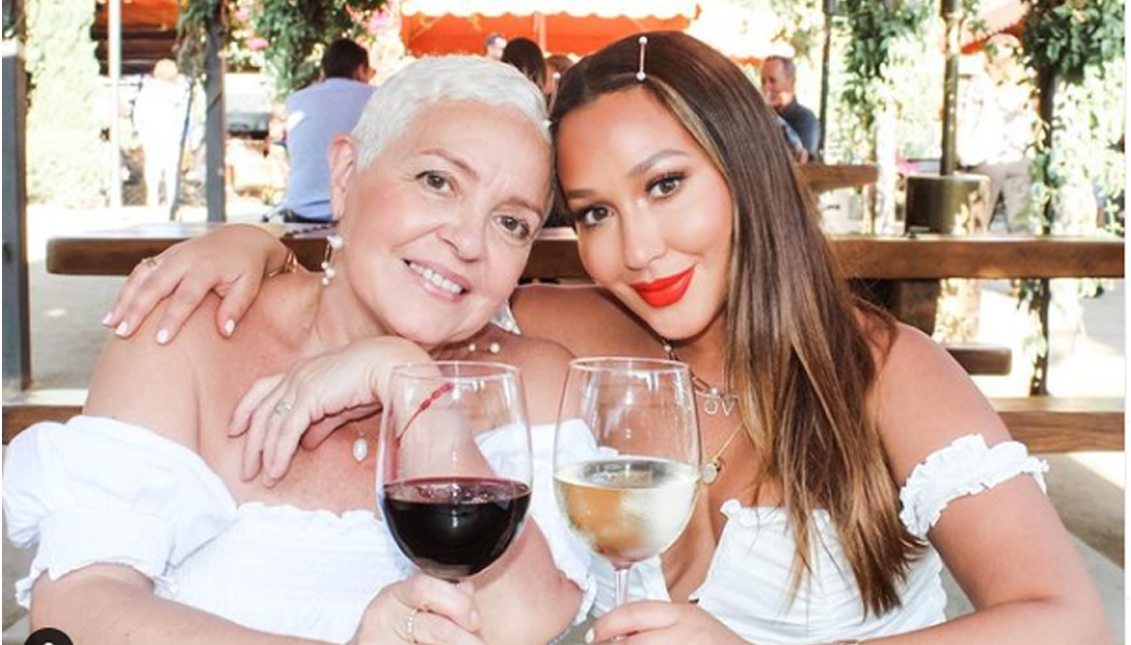
Nilda Alicea-Felix, the mother of actress and singer, Adrienne Bailon, shares her near-death COVID-19 experience
Alicea-Felix is out to spread the word about monoclonal antibodies, which helped her overcome her COVID nightmare.
Nilda Alicea-Felix thought she had a sinus infection when she developed a stuffy nose and sinus pressure in late 2020.
What she thought was a sinus infection quickly evolved with severe headaches and fatigue. And it got worse.
“I think the worst thing that happened to me was nausea and not being able to eat anything, which made me feel so weak,” Alicea-Felix said in a recent interview with AL DIA News.
Her youngest daughter, Adrienne stood by her side and tried nursing her back to health with hot tea and vitamins that were supposed to help with her prognosis.
Her mild symptoms soon turned into something that she had never experienced before, and her oldest daughter, Claudette, stepped in and demanded she go to the E.R.
“It was worse than the flu,” said Alicea-Felix.
She started to feel horrible on a Friday and by Sunday, her daughters took her to the hospital. Not long after, she was diagnosed with COVID-19.
Her oxygen levels were at 90% (low) and her heart rate was dangerously high. Her family grew increasingly worried about her potential outcomes and pooled for answers.
With the help of another family member, her daughters researched treatment via monoclonal antibodies. It was also something her doctors had mentioned as a potential treatment.
A monoclonal antibody is when a single antibody is cloned.
According to the FDA, the laboratory-made proteins imitate the immune system’s ability to fight off harmful pathogens such as viruses and invaders attacking the body’s immune system.
Her daughters continued research provided her with reassurance that the treatment would work in her favor.

“I trusted my daughters and doctors who were talking to me about it, I did have the confidence that my daughters and other family members had enough information to know this was going to work for me, ” said Alicea-Felix.
While in the hospital, she still had so many questions and concerns running through her head.
She didn’t know if they were going to admit her for the treatment, send her home, or give her the treatment right away in the E.R.
“After giving me fluids, because I was dehydrated, they ended up sending me home,” she said. “They said they would call me.”
Alicea-Felix waited three days for a response.
She was eventually fast-tracked to receive the monoclonal antibody treatment because of her age and her underlying preconditions.
RELATED CONTENT
“From that moment on, I can’t tell you that it went right away, but slowly my appetite came back, I was slowly becoming active,” said Alicea-Felix.
A week after the antibody treatment, her sense of taste and smell came back.
“I sometimes suffer from fatigue, but it’s not too bad,” she said.
Because of the enduring experience that Alicea-Felix suffered last year, she has made it her goal to bring awareness to others who don’t have access to monoclonal antibody treatments.
It’s something she wouldn’t have felt comfortable about without her family and doctor’s support.
“It is important to bring awareness to people who don’t have access to laptops and are not tech savvy,” she said. “Unfortunately, their doctors are not knocking on those doors for them.”
She believes that people who do have access to technology should help their neighbors who aren’t as lucky.
“If your grandmother is sick, if your aunt is sick, if your neighbor is sick, be informed so you can help them, like my daughters helped me,” said Alicea-Felix.
She is grateful for her daughter’s research and knowledge that opened her eyes to such special treatment.
“As Latinos and as people of color, it is hard to trust, I think that’s in our culture,” she said. “But if you have a niece or a daughter who is informed of this information, you’re going to trust this person, and i think that is my goal.”
Alicea-Felix is now asking people to learn more about monoclonal antibody treatments by going to different websites such as Combat COVID-19 Now, which gives an abundance of information on the treatment.
The website also has a Spanish version for Latinos who have been diagnosed with the virus.
“Please get informed, you could save a life,” she said.











LEAVE A COMMENT:
Join the discussion! Leave a comment.